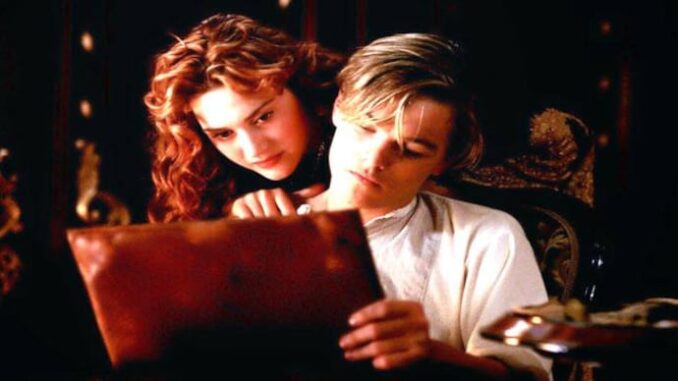
Two Decades Later: Titanic’s Jack and Rose Still Have Us Hooked
The year 1997 feels like a distant shore now, a fading photograph in the album of collective memory. Yet, whisper the names Jack and Rose, and an entire world unfurls: the grand, doomed ship, the icy breath of the Atlantic, and the incandescent glow of a love story that burned so bright it became a permanent fixture in our cultural firmament. Kate Winslet, the indelible Rose DeWitt Bukater herself, articulates this enduring grip with an uncanny accuracy: "Two Decades Later, Titanic’s Jack and Rose Still Have Us Hooked." Her observation is not merely a celebrity recalling an old role; it’s an acknowledgement of a phenomenon, a testament to a fictional coupling that continues to resonate with millions, pulling at heartstrings like a familiar, cherished melody.
What is it about this pairing—the aristocratic young woman stifled by societal chains and the free-spirited, penniless artist—that transcends the passing of years and the changing tides of cinematic taste? Part of their enduring appeal lies in their archetypal nature. Jack and Rose are the quintessential star-crossed lovers, a narrative as old as time itself, re-imagined on a canvas of unprecedented scale. He offers her liberation, a window to a world beyond her gilded cage; she offers him a reason to anchor his wanderlust, a depth of connection he never knew existed. Their romance is not just a fling but a profound awakening for both. Rose finds her voice, her autonomy, her very soul in Jack’s eyes, while Jack, for all his worldly wisdom, discovers a love that demands sacrifice. Who hasn't yearned for a connection that sees beyond wealth or status, that values spirit over circumstance? Their forbidden love, blossoming amidst the rigid class structures of the Edwardian era, speaks to a universal human desire for rebellion against convention, for a love that defies all odds.
Moreover, the intensity of their connection is amplified by its brevity and the looming shadow of the iceberg. Their love story unfolds with the ferocious speed of a comet, compressed into a few frantic, glorious days. There is no slow burn, no prolonged courtship; instead, a visceral, immediate recognition of soulmates. From the moment Jack saves Rose from her suicidal despair, their fates intertwine with an undeniable pull. This accelerated timeline, dictated by the ship’s inevitable demise, imbues every glance, every touch, every shared secret with a poignant urgency. We, the audience, are acutely aware of the ticking clock, making us cherish their fleeting moments of joy—the spontaneous dance in steerage, the liberating sensation of flying at the bow, the tender intimacy of the portrait session—even more deeply. This ephemeral beauty, burning brightly against a backdrop of impending doom, creates a narrative tension that ensures we are not merely watching a love story, but experiencing its breathtaking, heartbreaking rush alongside them.
Beyond the grandeur and the tragedy, Jack and Rose embody a potent youthful idealism that forever captures the imagination. They are young, vibrant, and utterly unburdened by the cynicism that often accompanies adulthood. Jack’s mantra, "Make each day count," becomes Rose's guiding principle, a vibrant counterpoint to the rigid, suffocating life she was destined for. Their love is pure, uncomplicated by past baggage or future calculations. It is a love that exists solely in the present, fueled by passion and a boundless belief in possibility. This innocence, juxtaposed with the stark reality of the sinking ship, elevates their story beyond simple romance into a meditation on life, loss, and the power of human connection. We are hooked because we remember, or long for, that kind of all-consuming, transformative first love – a love that promised an entire lifetime in a single moment.
Finally, Winslet's statement resonates because she, as Rose, carries the weight of their story forward. Jack’s ultimate sacrifice – his selfless act of giving her the space on the door, ensuring her survival at the cost of his own life – is the ultimate testament to their bond. Rose lives, but she lives for him, embodying his spirit of adventure and his appreciation for life’s simple wonders. She keeps her promise to "never let go," not of his hand, but of his memory and the lessons he imparted. This legacy imbues their relationship with a profound, almost spiritual depth. We are hooked because their love isn't just a fleeting encounter; it's a transformative experience that echoes through a lifetime.
Two decades on, the splash of the Atlantic still sounds in our ears, and the ache of the heart still reverberates. Jack and Rose, in their tragic, beautiful simplicity, remain a cultural Rosetta Stone for love. They remind us that the most profound connections often arise in the most unlikely of circumstances, that true love is about seeing and valuing another’s soul, and that some promises, once made, truly do last a lifetime. Kate Winslet is right; their story, etched into the fabric of our collective memory, continues to have us, willingly and irrevocably, hooked.